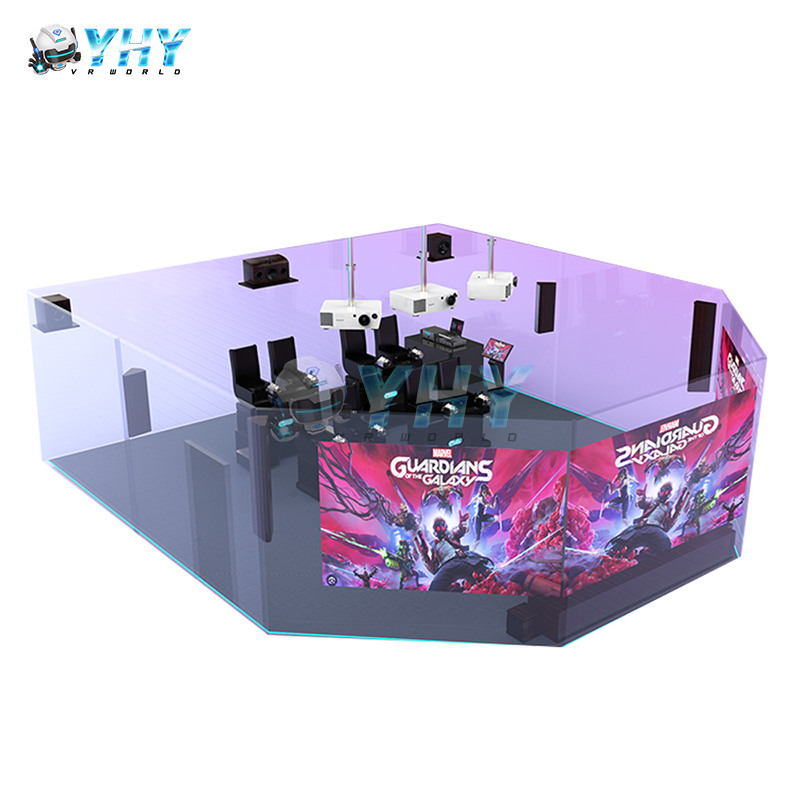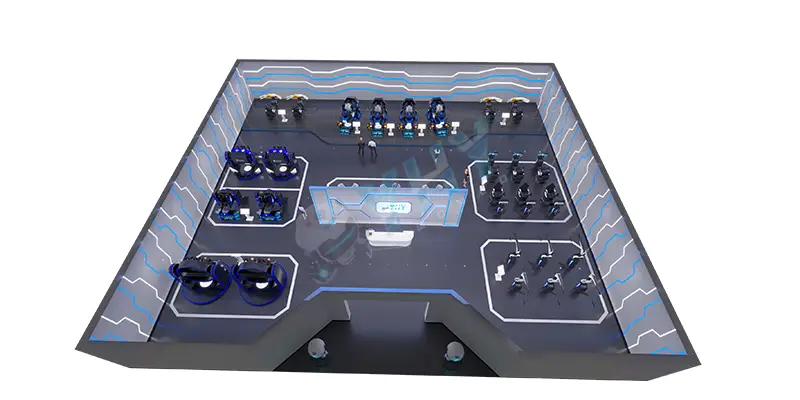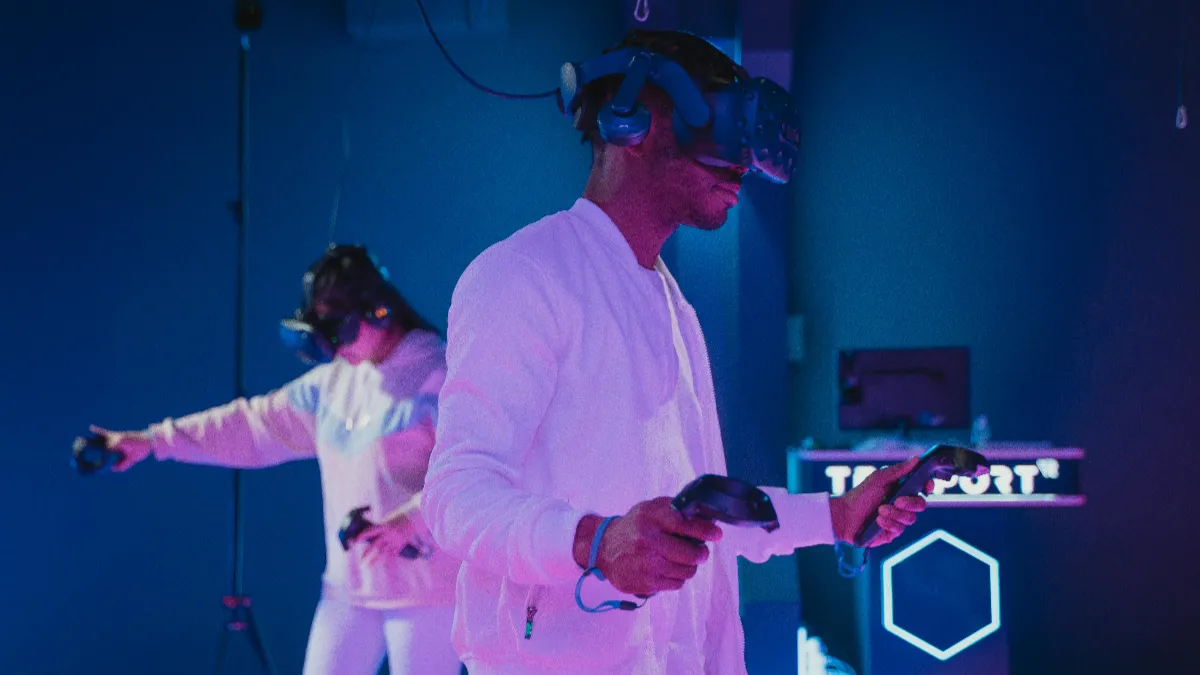Si vous avez envisagé d'ajouter une chaise VR 9D à votre lieu, qu'il s'agisse d'une arcade VR, un centre commercial, a museum, or a theme park—you’ve probably realized that the price is not as straightforward as it first appears. As someone who has worked in this industry for years, I can tell you that choosing a 9D VR chair is both a technical and a financial decision. The good news is: once you understand the cost structure, it becomes much easier to calculate your return and negotiate a fair deal with manufacturers.
Let’s break down the real numbers and give you a clear picture of what to expect in 2026.
Key Factors That Influence 9D VR Chair Price
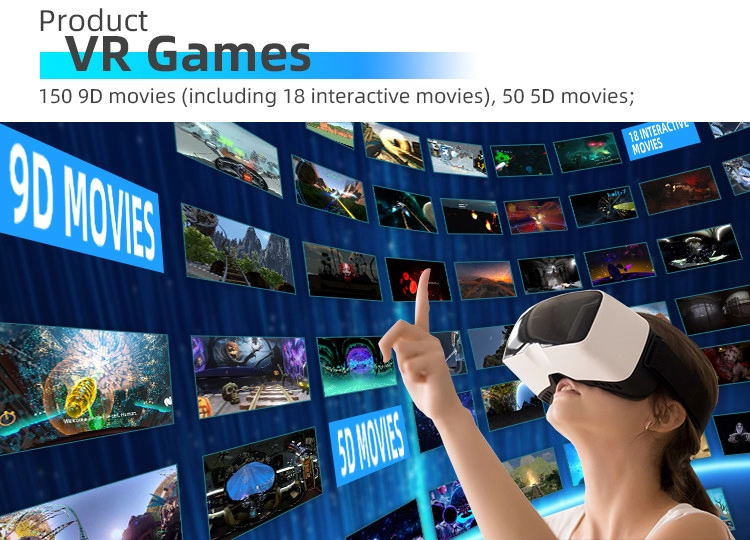
The cost of a 9D VR chair can vary widely, and the gap comes down to a few key elements in the design and build.
Motion System & Range
The more complex the motion system, the higher the price. A basic 3DOF chair uses simpler actuators for tilt and sway, while a 360° or 720° rotating platform requires powerful servo motors, precision engineering, and reinforced safety structures. These components directly raise production costs.
Seating Capacity
Single-seat models are the most affordable. Adding more seats means more structural material, stronger motors, and synchronized control systems. This increases the cost but also boosts throughput for operators.
VR Content & Software
Chairs bundled with a small set of films or games are cheaper. Premium packages often include 100+ titles, contenu interactif, et mises à jour logicielles régulières. Content development is expensive, so richer libraries make the equipment cost more.
Hardware & Immersion Features
The type of VR headset, sound system, and display quality matters. Standard HD headsets keep costs down, while 4K/8K headsets, integrated surround audio, and haptic add-ons raise both the user experience and the price tag.
Average 9D VR Chair Price Range in 2026
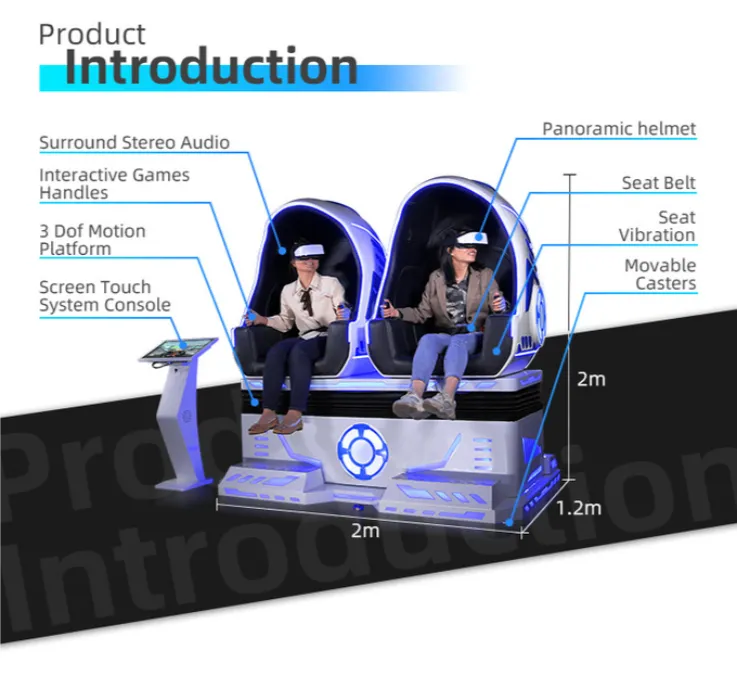
Now let’s talk real numbers. Based on industry data and recent quotes from top manufacturers, here’s what you can expect in 2026:
- Entry-Level Chairs: Around $4,500 - $7,000.
These are compact, good for small arcades or as an add-on in a shopping mall.
- Mid-Range Chairs: Around $8,000 - $12,000.
They balance price and performance, often the most popular choice for first-time buyers.
- High-End Chairs: Around $15,000 - $25,000.
These are the eye-catching machines that become the “star attraction” in a venue.
- Ultra-Premium Models: $30,000+.
These are less common but highly profitable in large entertainment centers or high-traffic tourist spots.
The Hidden Costs You Need to Consider Before Buying
The listed price of a 9D VR chair only tells part of the story. Operators should be aware of extra costs that can influence the real investment:
Expédition & Import Duties
Most chairs weigh 300–800 kg, which makes international shipping a major cost. Sea freight is cheaper but slow, while air freight is fast but costly. Customs duties can add around 10–20%, though rates depend on your local regulations.
- Australia: 0% duty, but about 10% GST applies.
- Canada: 0% duty, plus around 5% GST (some provinces add PST/HST).
- United Kingdom & EU: 0% duty, but about 20% VAT is charged.
- India: Around 15% duty, plus additional GST, making total costs higher.
Site Preparation
Large or rotating models may need reinforced flooring. High-power systems sometimes require a dedicated electrical circuit to ensure stable operation.
Content Licensing & Mises à jour
Basic packages may include a limited film set. If you want continuous new experiences, some suppliers charge annual fees, while others provide free lifetime updates.
Maintenance & Spare Parts
Motion chairs are mechanical, so regular upkeep is unavoidable. Budget 5–8% of the chair price per year for servicing and replacement parts.
Staff Training & Commercialisation
Staff need basic training to assist users and handle small issues. Au-delà de ça, marketing—posters, online ads, or local events—is essential to bring people in.
9D VR Chair ROI: How Profitable Is the Investment?
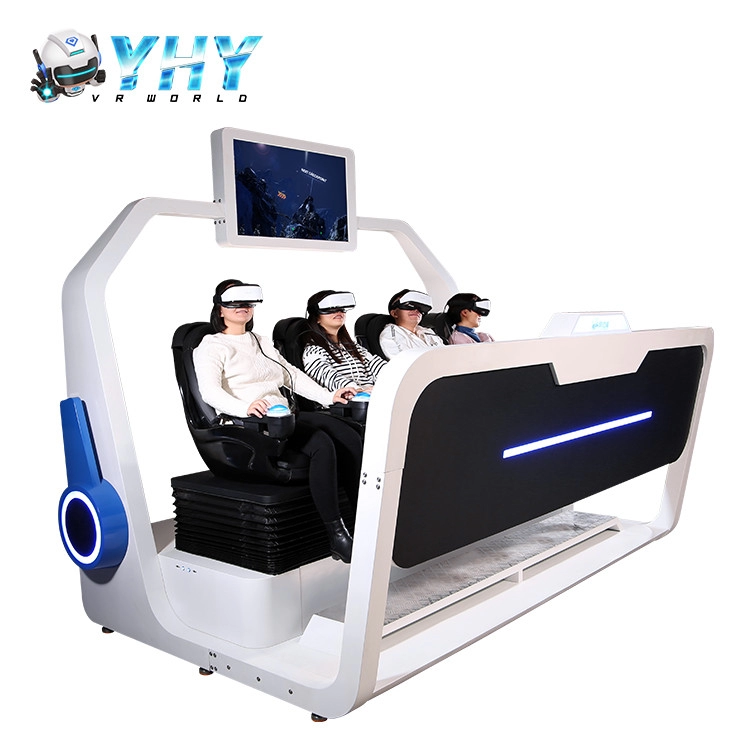
The profitability of a 9D VR chair depends on ticket price, seat capacity, utilization rate, and operating hours. To make this clear, let’s break it down with simple formulas.
Daily Income = Unit Price × Players per Session × Sessions per Hour × Operating Hours
Monthly Revenue = Daily Income × Operating Days per Month
Monthly Profit = Monthly Revenue − Operating Costs
Période de récupération (Months) = Initial Investment ÷ Monthly Profit
Example Calculation
Imagine you run one 4-seat simulator:
- Ticket price: $5 per player
- Players per session: 4
- Sessions per hour: 6
- Operating hours per day: 10
- Operating days per month: 26
- Monthly operating cost (staff, utilities, maintenance, marketing): $2,000
- Initial investment (equipment + setup): $25,000
Étape 1: Daily Income
$5 × 4 × 6 × 10 = $1,200 per day
Étape 2: Revenus mensuels
$1,200 × 26 = $31,200 per month
Étape 3: Monthly Profit
$31,200 − $2,000 = $29,200
Étape 4: Période de récupération
$25,000 ÷ $29,200 ≈ 0.86 months (~26 days)
Of course, this is an ideal scenario. In reality, factors like location, foot traffic, and marketing effort usually extend the payback period. For a single chair, many operators recover their investment within 2–3 months, while larger setups in average locations may take 6–9 months.
Where to Buy 9D VR Chairs?
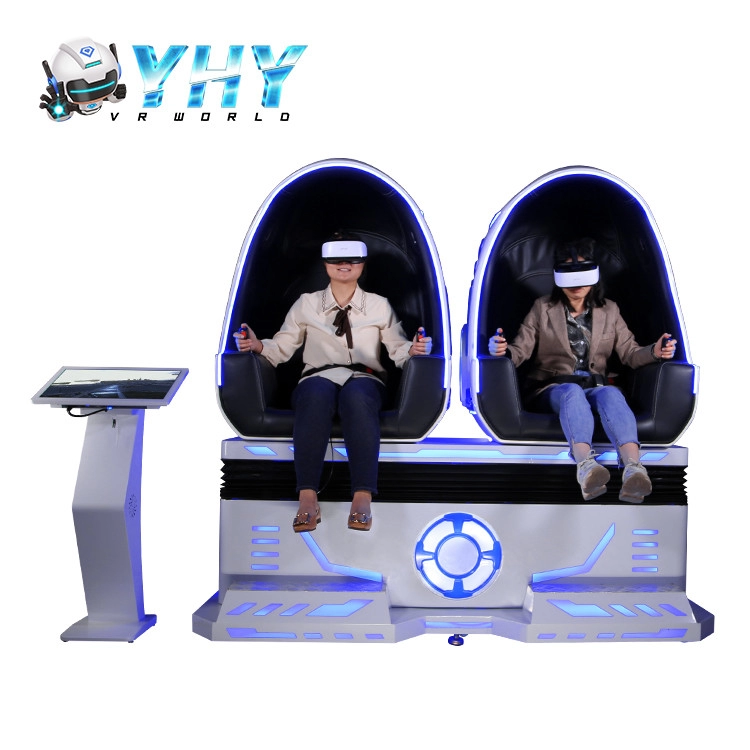
You have several options when sourcing a 9D VR chair:
Direct from Manufacturers (China being the largest hub)
Advantages: Lowest price, customization options, direct warranty.
Risks: Quality varies, so choose reputable suppliers with proven track records.
Authorized Distributors
Advantages: Local support, faster delivery, easier communication.
Risks: Higher markup (10–30% more than factory price).
Second-Hand Market
Advantages: Lower upfront cost.
Risks: Shorter lifespan, no warranty, outdated content.
China remains the global leader in VR simulator production, with Guangzhou being a major hub. If you’re buying for long-term business, I recommend going straight to a trusted manufacturer rather than experimenting with second-hand deals. Manufacturer like YHY, with nearly a decade of experience and 95% market share in 360° rotational simulators, can provide both reliable hardware and full after-sales support.
Tips to Get the Best 9D VR Chair Price from Manufacturers
Enfin, let’s talk strategy. Prices are negotiable, and with the right approach, you can save thousands.
- Compare at Least 3 Suppliers: Always ask for detailed quotes with specifications. Don’t just focus on the chair price—check what’s included, such as VR content, garantie, and installation support.
- Ask About Content Updates: A supplier that offers free lifetime updates can save you significant money over time, while paid updates may increase your operating costs.
- Order in Bulk (If Possible): Even purchasing two units may earn you a discount, and larger orders often reduce the unit price by 10–20%. This makes sense if you’re planning to expand your VR zone.
- Check Certifications: Look for CE, UL, or ISO certifications, as they prove the equipment meets international safety standards. This is not only about safety but also about avoiding costly compliance issues later.
- Negotiate Payment Terms: Many manufacturers work with a 30% deposit and 70% balance before shipping, but some may allow installment payments if you ask. Flexible terms can help you manage cash flow more effectively.
- Think Long-Term Partnership: Manufacturers value repeat customers. If you show interest in multiple products—such as VR cinema, VR racing, or VR shooting simulators—you’re more likely to secure better deals and priority support.
Pensées finales
When buying 9D VR chairs, it is crucial to consider the price, its durability, engaging content, and long-term ROI. A reliable simulator can become your venue’s signature attraction, drawing crowds and paying for itself faster than most amusement equipment. Treat it as an investment, not an expense. If you’re ready to explore models, get pricing, or discuss your project, contact YHY today and let’s build your next success together.

